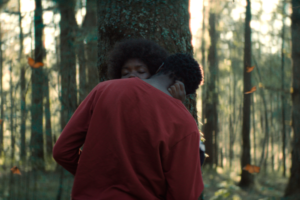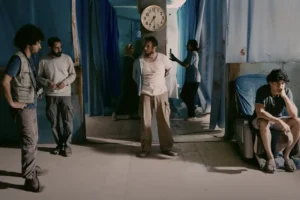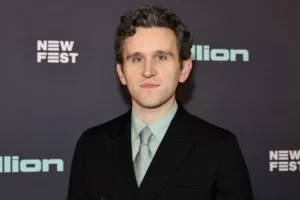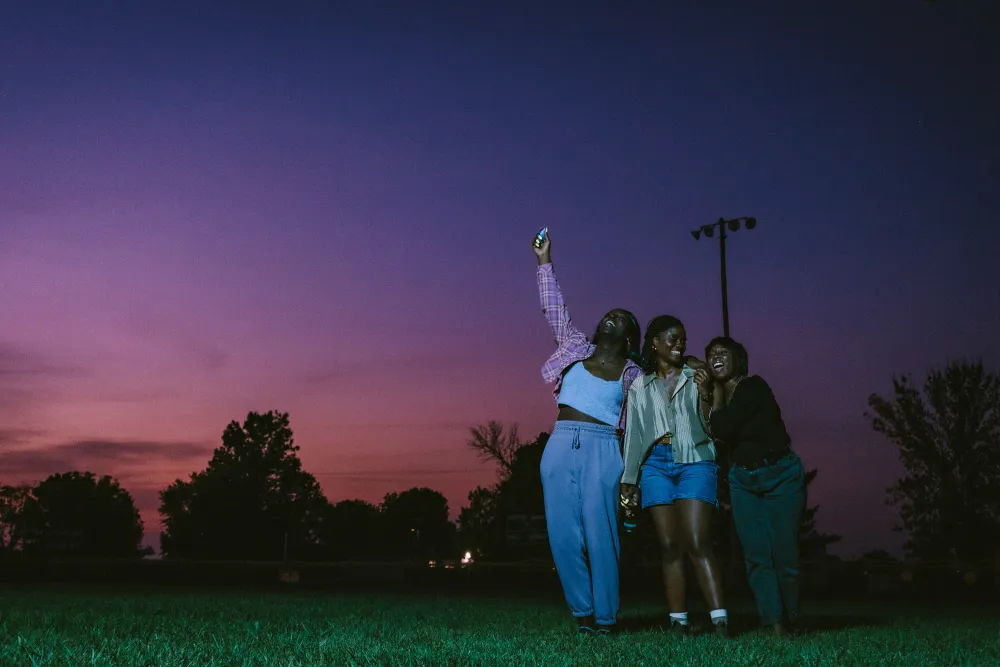According To The variety Making its international debut in Berlin, Shatara Michelle Ford’s sophomore feature “Dreams in Nightmares” follows queer Black femmes on an impromptu road trip across the American Midwest in search of a fourth friend who has seemingly disappearedLaid off from her job as a creative writing teacher, Z (Denée Barton) spontaneously heads from Los Angeles to New York City to visit college friends Tasha (Sasha Compère) and Lauren (Dezi Bing). A night out leads to a cross-country road trip the following day as they realize none of the group has heard from their friend Kel (Mars Storm Rucker) for a worrying amount of time — what follows is a cathartic odyssey filled with joy and healing.
The genesis of Ford’s “Dreams in Nightmares,” which screens in Berlin’s Panorama, was a “need for using [their] imagination and encouraging others to do the same.” They sensed the feeling of exhaustion and overextension many have been experiencing for years — a quiet acceptance of the circumstances we are led to believe cannot be changed.
“There isn’t enough space for us to imagine anything beyond what is in front of us,” they say. “I think that even when we care to change those things, we live in a very reactive and responsive place. We can’t be proactive or even do any kind of semblance of using the other spaces of our brain to construct and design something that suits us better.”
One of Ford’s goals with the film is to leave audiences with “the reminder that there is something beyond what we can see and experience,” they say. “The choices of the people we love and care about are pushing us constantly to think about things a little bit differently, and if we’re receptive to that, or maybe even if we’re supported by them in that, we can open things up for ourselves.”
In the film, the trio’s experiences — from a tense visit with a friend’s parents to an unwelcome feeling at a roadside restaurant — reflect the many uncertainties that the Black and queer communities face on a daily basis. “Yet, even as all of those things were happening, we still found ways to exist and thrive and find joy, create family and imagine lives beyond it,” they say.
The film serves as a loving ode to the chosen families queer people often find for themselves— something that’s not frequently explored in film. “All people want to believe that your family loves you unconditionally, in a way that means that they will accept the things that you’re telling them,” says Ford. But there is a universality in longing for support and acceptance. “Something I wanted to explore is the fact that it’s a spectrum, and it goes both ways,” says Ford. “It’s a spectrum of how accepting your family of origin are for their relative context and experiences, but it’s also a spectrum for the individual themselves and how much they really have the capacity and the desire to fully sit in the truest version of themselves with the people who fundamentally they believe are most important to them. And I think that that supersedes gender and sexuality and sexual orientation. I think that we all struggle with that.” As for what’s next for Ford, they’d like to try out a type of film produced less and less over the years. “I am a big sucker for a genre that doesn’t really exist anymore, which is the mid-budget adult semi-crime-thriller,” they say. “Give me an ‘Insomnia,’ you know? Where’s my ‘Panic Room’?”
















+ There are no comments
Add yours